
Ultimate Juice – Ukraine Support
To help the efforts in Ukraine, Ultimate Juice has launched a Non-profit E-liquid range called “Ultimate E-liquid supports Ukraine”.
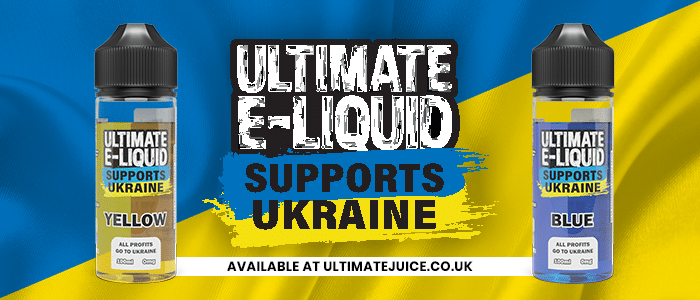
This range consists of two flavours which share the colours of the Ukraine flag respectively. ‘Blue’ is a Blue Raspberry Energy drink flavoured e-liquid and ‘Yellow’ is a Tropical fruits flavour with Pineapple and Mango.
They have manufactured 4000 bottles of this new range and will in turn donate all profits from this run until it has sold out.
The profits made from this project for Ultimate Juice will be going to the DEC Ukraine humanitarian appeal to help support struggling families in the current crisis. These families include people who are in need of food, water and shelter.
Ultimate Juice say…
“We would appreciate as much support as possible to make as much of an impact as we can to support these people.”
Visit the Ultimate Juice website for more details or to purchase.
E-liquid Gets The “All Clear”…
A recent study by the CoEHAR (Centre Of Excellence for the Acceleration of Harm Reduction) Labs in Catania in Italy has published its results.
CoEHAR study on ecig flavored liquids: samples are 80% lower risk than smoking
Four different e-liquids were analysed manufactured by Dreamods which were different tobacco flavours – “Dolce Bacco”, “Red Bacco”, “Deciso” and “Otello”. The device used for the e-liquid tests was an Aspire Zelos and Nautilus 2 tank with 1.6ohm coil at 10W power.
Anyway the results apparently show there were no contaminates in any of the tested liquids and any metal contents were below the levels required by the WHO (World Health Organisation) for drinking water.
Also tested was the vapour from these liquids versus tobacco smoke to replicate the human exposure of lung cells to them.
Professor Massimo Caruso (University of Catania and author of the study) was…
“satisfied with the significantly reduced (about 80% less) cytotoxic effect of the aerosol of all four liquids compared to cigarette smoke.”
The study shows…
“Results that increasingly support international data confirming the reduced toxicity of electronic cigarettes compared to conventional smoking and the benefits, in terms of health, for those smokers who decide to use them to quit smoking.”
You can read the full article on the Wiley Library – “In vitro cytoxicity profile of e-cigarette liquid samples on human bronchial epithelial cells“.
IEA Is Pro Vaping & Pro Innovation!
The IEA (Institute of Economic Affairs) has published an article looking at innovation taking place in nicotine products.
The link below also has a viewer to read the original document or you can click on this link to view the PDF full page.
Vaper Trails: New nicotine products and the innovation principle
Several points were made in the summary – I quote some of them below…
“The benefits of innovation are unpredictable and hard to quantify. Fear of adverse consequences can lead to excessive emphasis on risk avoidance, leading to regulation that holds back beneficial innovation. The experience in tobacco harm reduction illustrates this.”
“Innovative reduced-risk nicotine products, such as e-cigarettes, snus and heated tobacco, have been associated with steep declines in smoking prevalence in several countries, including the UK, but have been banned in others on the basis of the precautionary principle.”
“Those who are opposed to tobacco harm reduction tend to focus on the potential risks of alternative products, rather than their risks relative to the hazards of smoking. This is a mistake. The realistic counterfactual to a scenario in which hundreds of millions of smokers switch to lower-risk nicotine products is not one in which nicotine use disappears but one in which hundreds of millions of people continue to smoke cigarettes.”
The document was written by Victoria Hewson and Christopher Snowdon who are both heads of departments at the IEA.
It covers the topics of Harm Reduction, How risks are relative and how over-regulation could be a hindrance.
Innovation In The Tobacco Industry
The Tobacco Reporter website has published an interview with former WHO and Foundation for a Smoke-Free World member Derek Yach.
Derek was involved in the creation of the “Framework Convention for Tobacco Control” back in 2003.
Since leaving these organisations he has spent a lot of time promoting innovation to help reduce smoking rates and encouraging health authorities to recognise this opportunity.
Here is the video interview including topics such as the Tobacco Reporter recent “innovation issue” and the importance of innovation.
You can read the digital version of the Tobacco Reporter April Innovation issue here.
Censorship or Reducing Bias?
An article on the ACSH (American Council on Science and Health) website by Cameron English discusses how some science journals are refusing to publish Tobacco Industry research.
The AJPH (American Journal of Public Health) announced a policy change that it will no longer accept content from scientists associated with the vaping or tobacco industries.
The new policy was stated in the February 2022 opinion piece “The Tobacco Industry’s Renewed Assault on Science – A Call for a United Public Health Response” published on the AJPH website.
It seems to have a good heart stating:
“Corporate deception in public health is nothing new. From the fossil fuel industry hiding the environmental impact of fracking to the pharmaceutical industry misleading the medical community about the dangers of opioid use, for-profit industries have often misrepresented scientific findings to obscure negative evidence related to the public’s health and well-being to protect their bottom line.
Among the worst offenders is the tobacco industry, who knowingly hid the truth about the impact of cigarette smoking for decades. Tobacco industry executives spun a narrative of doubt around the health risks of smoking, donated to politicians who would oppose greater regulations, and funded research designed to undercut objective scientific findings to protect profits. Not until the landmark 1998 Master Settlement Agreement did such actions receive greater attention and tobacco companies were forbidden to engage in practices that conceal health risks.”
However it also raises questions about censorship and how the scientific establishment could basically ignore any line of research it doesn’t agree with.
Also some very convincing arguments are mentioned in the article about how independent studies have also produced their fair share of Junk Science too.
The author of the article is actually a vaper and stopped smoking by vaping 10 years ago. He says in reply to any suggestion that he may be a “tobacco Shill”…
“Critics will inevitably assert that I wrote this article because ACSH has received some tobacco-industry funding in the past. That’s nonsense, of course. I cover vaping research because I smoked my last pack of Camel Lights a decade ago, right around the time I purchased my first e-cigarette with my doctor’s endorsement. I’m much healthier as a result, a fact I’ve learned to truly appreciate since becoming a father. It therefore boggles my mind that American anti-smoking groups continue to deny the well-documented benefits of vaping.”
I am conflicted about this issue – yes we need to safeguard against Big Tobacco hiding or manipulating evidence, but I think every study needs to be assessed by its own virtues and accuracy.
German Study – Vaping Vs NRT Vs Cold Turkey
A new paper has been published on the PubMed website titled “The Effectiveness of E-Cigarettes for Smoking Cessation – a Comparison With Nicotine Replacement Therapy and No Use of Evidence-Based Cessation Aids in the German Population“.
I do agree that the title is a bit of a jumbled word-salad but the findings make a lot more sense.
The basis of the study was to assess the effectiveness of e-cigarettes (with or without nicotine) versus NRT (Nicotine Replacement Therapy) or not using any aids at all to quit smoking (Cold Turkey method).
This took place in Germany between 2016-2021 and 2740 current smokers and recent ex-smokers who had made more than 1 quit attempt in the past 12 months were included.
The conclusion as you would have expected was that they found the vapers showed a higher rate of abstinence from cigarettes than with those who went “cold turkey”.
Sadly the English version of the text is not available yet – but should be on the way soon!
Cochrane Want Your Input!
The Cochrane Tag (Tobacco Addiction Group) has asked for everyone to take part in a survey to help them understand the output people want to see.
What do you think? Help us by taking our short survey URL below. Should we continue to search the literature monthly to keep the Cochrane review of #ecigs to #QuitSMOKING up to date? Best ways to share findings? Thankyou! @CRUK_Policy funded @UniofOxford https://t.co/IYfRh8QN4F pic.twitter.com/u5SVrDAVSv
— CochraneTAG (@CochraneTAG) April 21, 2022
Cochrane are an organisation who perform medical research of healthcare topics.
They want to see how well their information is put across and any feedback people have.
I quote…
“Please help us to evaluate this approach by letting us know if you are aware of this review and of our supporting materials and by providing any feedback you may have.
By taking part in this survey you will help us to successfully share the findings that matter most to the people who need them.”
You can take part in the survey here – “E-cigarettes for stopping smoking review feedback April 2022“.
Well another busy week for vaping – hope you had a good read and I will be back this time next week!

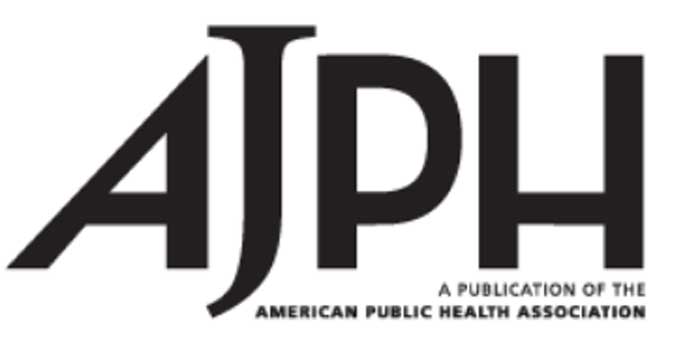
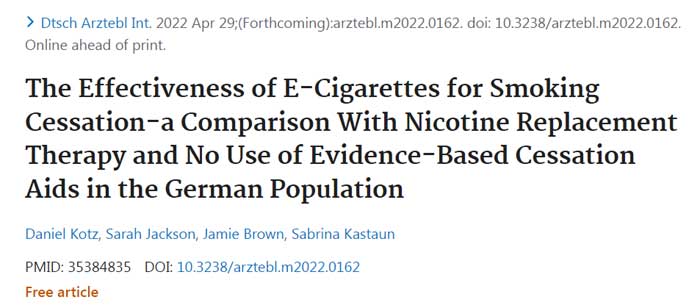


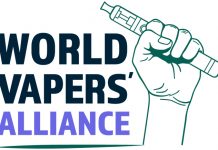



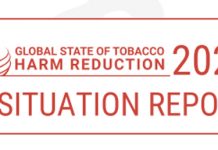
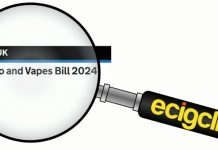
QUE PASA CON LA WEB DE ULTIMATE JUICE…???
Usar lo que quieres decir? todo funciona bien para mí?